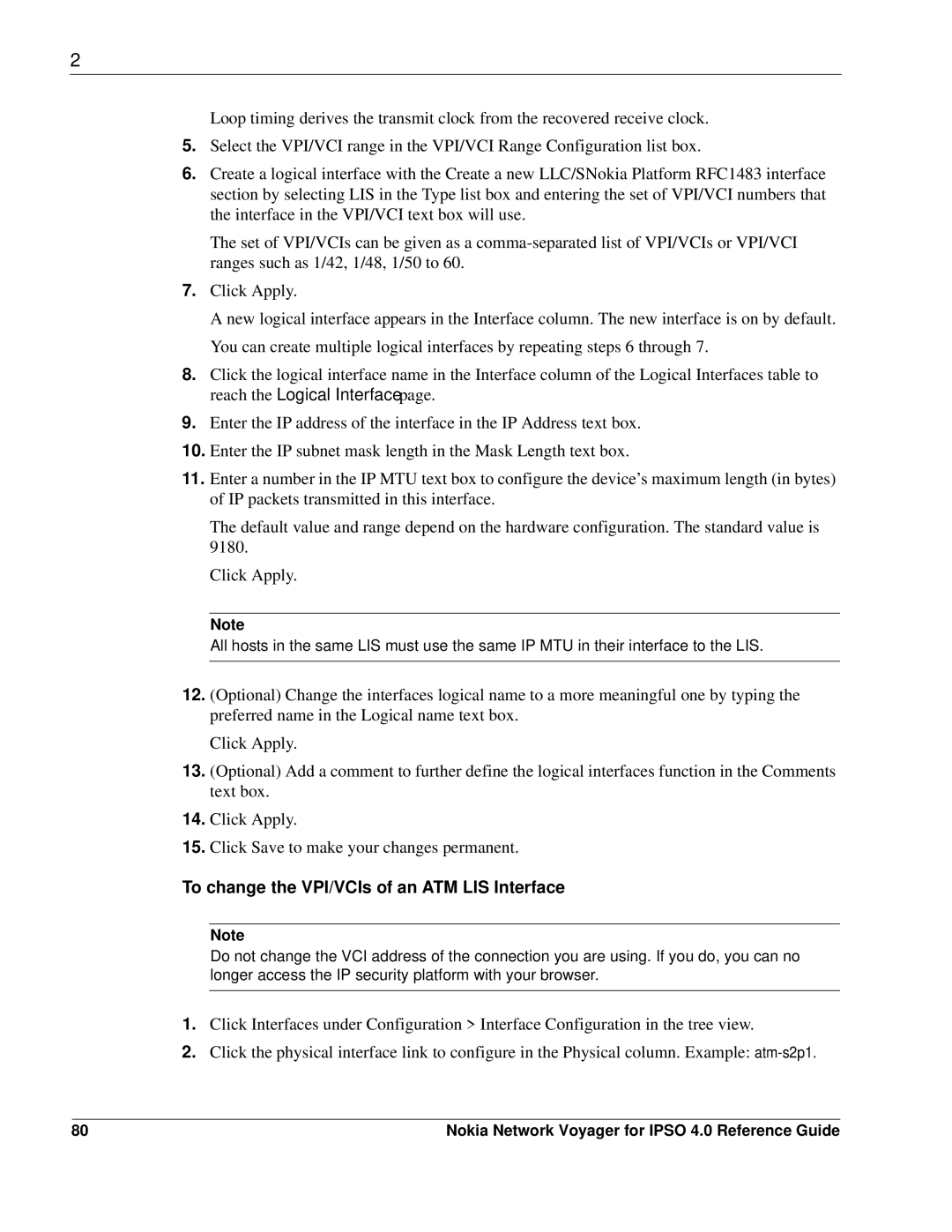
2
Loop timing derives the transmit clock from the recovered receive clock.
5.Select the VPI/VCI range in the VPI/VCI Range Configuration list box.
6.Create a logical interface with the Create a new LLC/SNokia Platform RFC1483 interface section by selecting LIS in the Type list box and entering the set of VPI/VCI numbers that the interface in the VPI/VCI text box will use.
The set of VPI/VCIs can be given as a
7.Click Apply.
A new logical interface appears in the Interface column. The new interface is on by default. You can create multiple logical interfaces by repeating steps 6 through 7.
8.Click the logical interface name in the Interface column of the Logical Interfaces table to reach the Logical Interface page.
9.Enter the IP address of the interface in the IP Address text box.
10.Enter the IP subnet mask length in the Mask Length text box.
11.Enter a number in the IP MTU text box to configure the device’s maximum length (in bytes) of IP packets transmitted in this interface.
The default value and range depend on the hardware configuration. The standard value is 9180.
Click Apply.
Note
All hosts in the same LIS must use the same IP MTU in their interface to the LIS.
12.(Optional) Change the interfaces logical name to a more meaningful one by typing the preferred name in the Logical name text box.
Click Apply.
13.(Optional) Add a comment to further define the logical interfaces function in the Comments text box.
14.Click Apply.
15.Click Save to make your changes permanent.
To change the VPI/VCIs of an ATM LIS Interface
Note
Do not change the VCI address of the connection you are using. If you do, you can no longer access the IP security platform with your browser.
1.Click Interfaces under Configuration > Interface Configuration in the tree view.
2.Click the physical interface link to configure in the Physical column. Example:
80 | Nokia Network Voyager for IPSO 4.0 Reference Guide |
